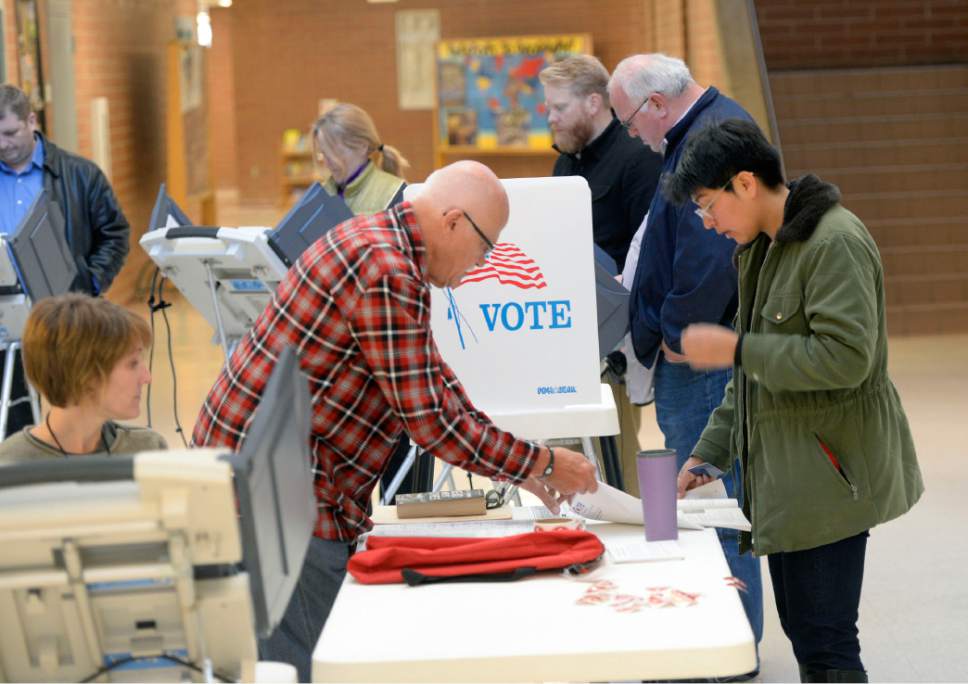This is an archived article that was published on sltrib.com in 2017, and information in the article may be outdated. It is provided only for personal research purposes and may not be reprinted.
GOP legislators long had balked at a proposal by Democrat Rebecca Chavez-Houck for "ranked choice voting." But after the central committee of the Utah Republican Party endorsed the idea last weekend, many lawmakers changed their minds.
The House voted 59-12 to pass Chavez-Houck's bill, HB349, and sent it to the Senate — where it is expected to face tougher sledding.
The bill would create an instant runoff system in multi-candidate primary elections.
Voters would rank their first-, second-, third-choice, etc. If no one achieves a majority initially, the lowest-vote-receiving candidate would be eliminated. Supporters of that eliminated candidate would have votes shifted to their second-choice. The process would repeat until someone wins a majority.
The Utah Republican Party earlier had pushed instead the idea of runoff elections to help ensure a majority winner in crowded-field primary elections. But it reversed course saying that solution would be too expensive and take too much time.
Its reversal also came as the party reneged on a deal last weekend. It had pledged to drop its legal challenges of a new election law if the Legislature would pass a runoff election bill. As that bill was moving forward, the party changed its mind — and said it would pursue its legal challenges anyway.
It was part of a fight over a new law, called SB54, allowing candidates to qualify for the primary by gathering signatures or through the traditional caucus-convention system.
A possible consequence of SB54 are primary races with multiple candidates, raising the prospect of a winner securing the party nomination with a small percentage of the votes.
Chavez-Houck noted in debate that the Utah Republican Party has already used ranked choice voting in its state conventions. She said it could help voters feel that their votes truly count, even if perhaps they know their top choice may not win.
Sen. Curt Bramble, R-Provo, author of the controversial SB54 who had pushed a runoff election bill at the request of the GOP only to drop it after it broke its deal, has predicted the instant runoff bill has little chance of passage in the Senate.
"There is very little, if any, appetite to pursue instant runoff voting," he said earlier this week. Meanwhile, the House defeated another controversial election provision on Friday.
It voted 26-45 to kill HB314, which would have required that mail-in ballots arrive at a county clerk's office on or before Election Day. Critics argued that it would have prevented about 57,000 votes from counting in last November's election.
Current rules require only that a by-mail ballot be postmarked the day before an election.
Later in the day, that bill was resurrected. The House removed the controversial portion about the mailing deadlines, and passed remaining provisions to require Election Day drop boxes for ballots. The watered-down version passed 64-9.



